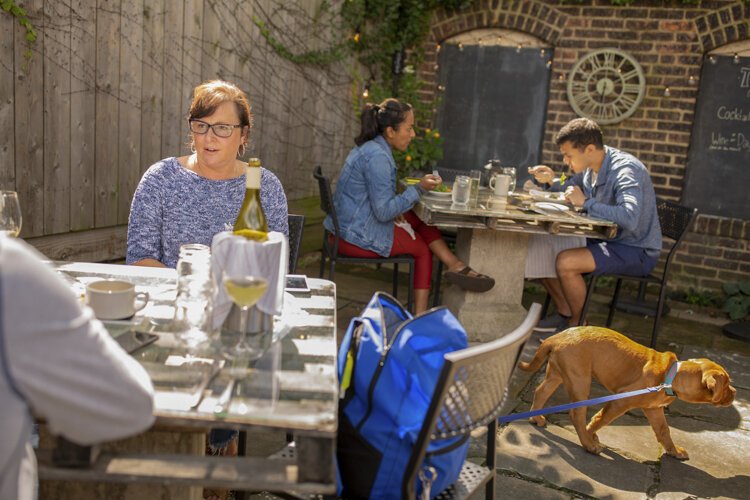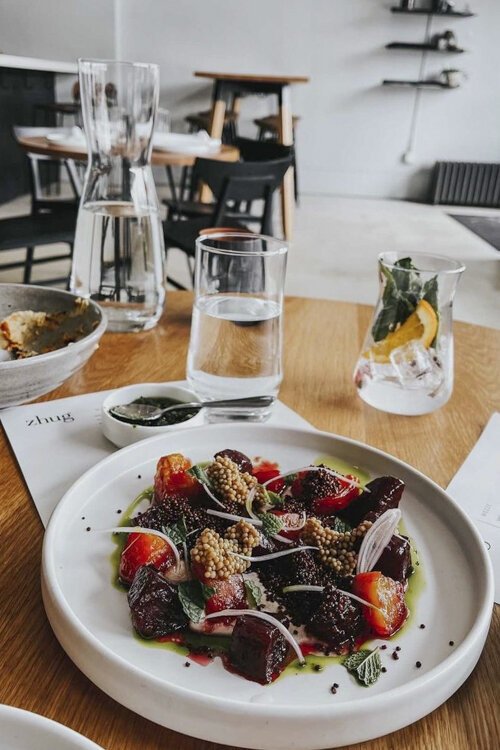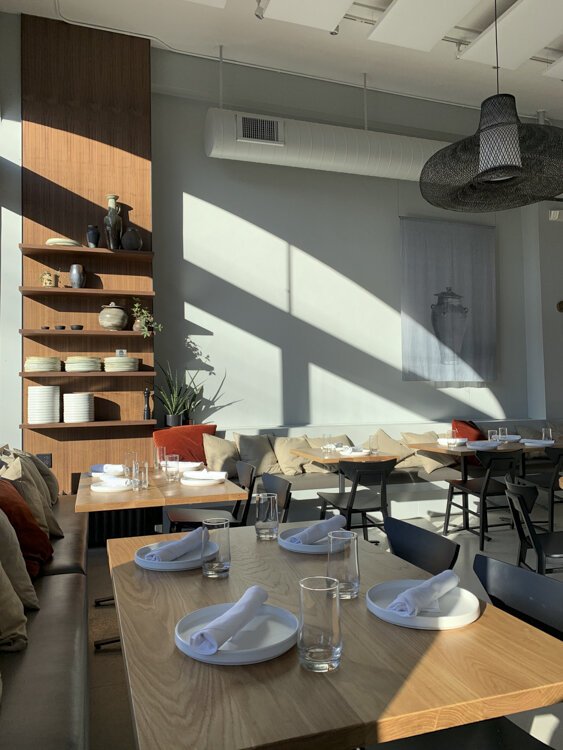Emotional rollercoaster: Area restauranteurs optimistic about the future, but more help is needed
Cleveland’s bars and restaurants spent the last 15 months scrambling to survive, with the pandemic causing some establishments to go under permanently.
Even if the recent expiration of coronavirus health orders brings a surge of business, the region’s restauranteurs will still be seeking help—financial and otherwise—in the coming months.
In May, restaurants, bars, bakeries, and similar establishments dipped into approximately $28.6 billion in tax-free grants from the Small Business Administration. Before ending on May 24, the Restaurant Revitalization Fund received more than 300,000 applications from all 50 states and the District of Columbia.
 Homa Moheimani, manager of media and communications with the Ohio Restaurant Association (ORA) advocacy group.For an industry that lost $280 billion in sales because of COVID-19, according to the U.S. Census Bureau, the tasks of increasing consumer confidence and enticing a reluctant labor force to return will be vital moving ahead.
Homa Moheimani, manager of media and communications with the Ohio Restaurant Association (ORA) advocacy group.For an industry that lost $280 billion in sales because of COVID-19, according to the U.S. Census Bureau, the tasks of increasing consumer confidence and enticing a reluctant labor force to return will be vital moving ahead.
“We’re looking forward to increased vaccinations, and we have these health orders going away,” says Homa Moheimani, manager of media and communications with the Ohio Restaurant Association (ORA) advocacy group. “The number-one issue now is not having enough people to work. That’s a huge challenge.”
Over the ongoing virus crisis, ORA directed its 2,000 members to paycheck protection dollars and additional economic aid like the revitalization fund. Support depends on need, including an Original Pancake House in Columbus, for instance, that paid out of pocket to keep its employees.
“Our members were grateful for any assistance, but it’s not enough,” says Moheimani. “Everyone knows that, from the local mom-and-pops all the way to the National Restaurant Association.”
Making the best of it
Although Cleveland chef/restaurant owner Doug Katz had safety concerns regarding last year's state reopening plans, those worries no longer apply.
“Now that the vaccine is available, people have the option of creating safer situations for themselves,” says Katz. “As an economy, it’s important for our livelihoods to get us back open.”
Katz re-opened Zhug in Cleveland Heights for dine-in, with staff at the Middle Eastern-flavored café no longer required to wear face masks per employee and customer feedback. In November, he will launch a brick-and-mortar version of the Amba ghost kitchen in the Hingetown neighborhood of Ohio City.
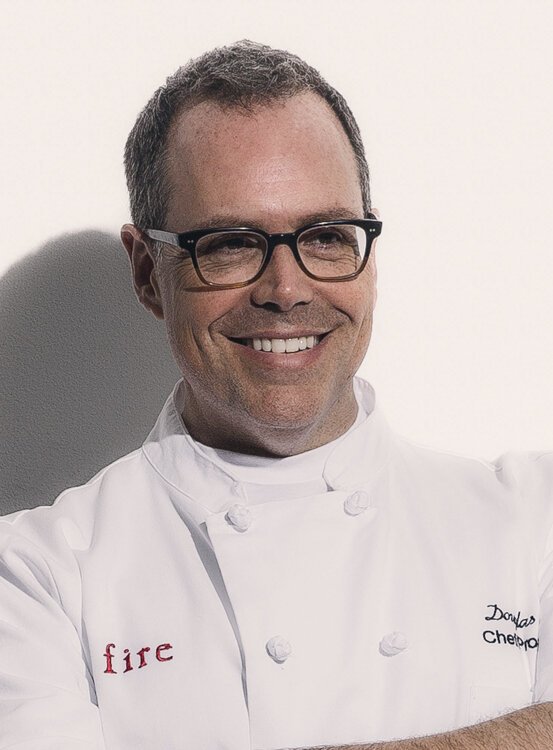 Cleveland chef/restaurant owner Doug KatzOptimistic outlook aside, the last year has not been without painful challenges—among them the permanent closure of Fire, Katz’s flagship restaurant at Shaker Square.
Cleveland chef/restaurant owner Doug KatzOptimistic outlook aside, the last year has not been without painful challenges—among them the permanent closure of Fire, Katz’s flagship restaurant at Shaker Square.
“From an emotional standpoint, it’s up and down every day,” Katz says. “There was anxiety about Fire, and then creating new concepts to survive. Zhug had been doing takeout and delivery only. When we went to reopen, there was anxiety about getting the dining room back to a functioning space.”
Since March 2020, Katz has accrued PPP loans for two separate operations, as well as an emergency grant of $10,000. The funding went into rent and payroll—he’s now waiting on response to his revitalization fund application, while keeping watch on an industry facing both higher food costs and a shallow labor pool.
“Without that initial funding, we wouldn’t be a solvent business and would probably need to make much more difficult decisions,” says Katz. “Everyone is having the same issues with labor, and everyone is applying for revitalization dollars.”
Smaller programs like the now-expired Bar and Restaurant Assistance Fund are similarly aimed at uplifting owners experiencing financial difficulties related to COVID-19. Last month, state lawmakers approved a relief package that will send $125 million to bars, restaurants, and hotels.
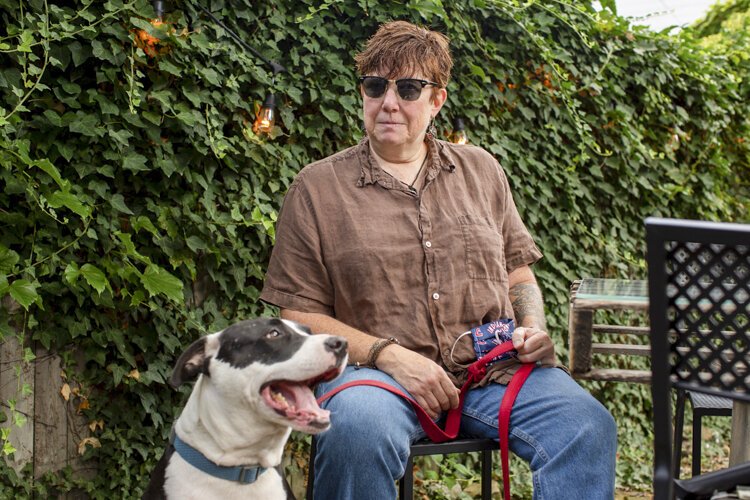 Toast owner Jillian Davis received two rounds of PPP along with a $150,000 Economic Injury Disaster Loan from the SBA.Toast owner Jillian Davis received two rounds of PPP along with a $150,000 Economic Injury Disaster Loan from the SBA. More recently, she was approved for $200,000 in revitalization funding, which she’s using for salaries, building repairs, and working capital at Toast.
Toast owner Jillian Davis received two rounds of PPP along with a $150,000 Economic Injury Disaster Loan from the SBA.Toast owner Jillian Davis received two rounds of PPP along with a $150,000 Economic Injury Disaster Loan from the SBA. More recently, she was approved for $200,000 in revitalization funding, which she’s using for salaries, building repairs, and working capital at Toast.
The Gordon Square Arts District eatery had restricted indoor and patio operations last summer, losing sales alongside rising case numbers in fall and winter.
“Today, a busy week is 25% less of what it would be in 2019,” says Davis. “We were down 60% in sales last year. The margins are tight, which is something people don’t understand.”
Davis laid off her staff during the March 2020 shutdown, bringing back kitchen workers upon reopening even as servers were slower to return. She raised hourly rates for her tipped employees, most of whom have weathered the storm into 2021. Davis says she is also glad to have a funding backstop should future case spikes result in a return of restrictions.
“It’s about engaging peoples’ comfort levels,” says Davis. “You can joke about the virus being gone on June 2, but we’ll have to watch where it’s going. Ideally, we’d have guests show their vaccination cards at the door, but that’s not practical. We’re just going to have to do the best we can.”
Additional virus-related fallout is a certainty no matter the case trajectory, notes Katz. What he’d like is a scarcity of bureaucratic red tape on projects that will allow him to draw business. For example, a patio for Zhug is currently tied up in Cleveland Heights city council, wasting the start of the region’s short window of outdoor patio dining.
“There are targeted opportunities that don’t have to be grants, but ways to get us jumpstarted back into our business,” Katz says. “Take away those roadblocks and don’t make us go through the legwork when we’re already struggling. We’re a close-knit community surrounded by businesses that support and talk to each other. The pandemic has brought us even closer together.”


